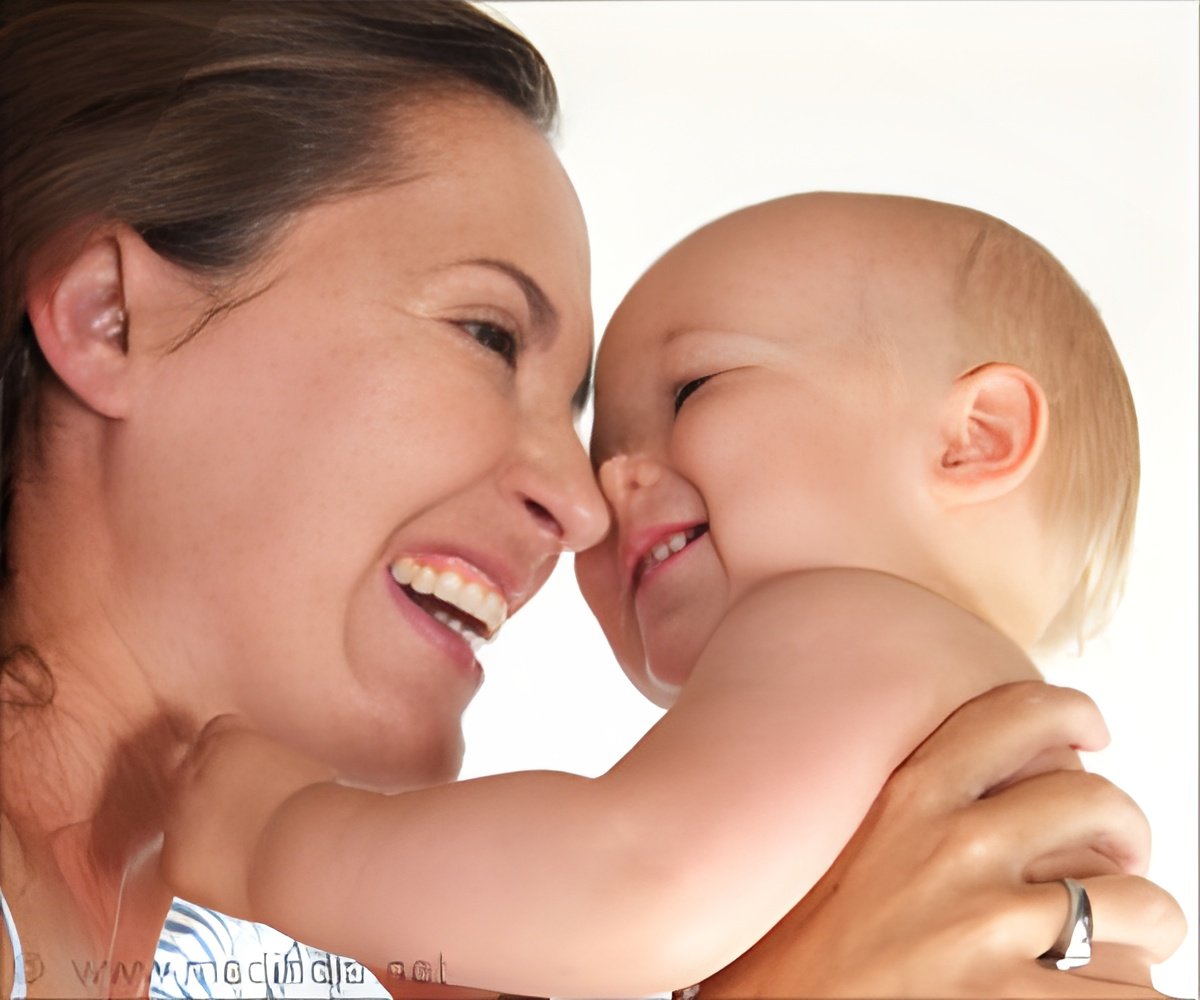Children who laughed at the antics of the adults were able to repeat the action themselves more successfully than those who did not laugh.

In one group the adult simply played with the toy after retrieving it; while in the other group, the adult threw the toy immediately on the floor, which made half the children in that group laugh. The findings suggest that children who laughed at the antics of the adults were able to repeat the action themselves more successfully than those who did not laugh, as well as those who were included in the 'humorless' control group."
The authors suggested, "In this case, it is not humor per se that may have facilitated learning, but (that) temperamentally 'smiley' babies were more likely to engage with the environment and therefore to attempt and succeed at the task. It could also be the case that 'laughing babies' might have higher social skills or cognitive capacities, allowing them to interact more easily with others and making them more amenable to mimicking the actions of others."
The second explanation the investigators put forward relates to brain chemistry. It is a well known fact that positive emotions, like laughter or engaging well with an experimenter, can increase dopamine levels in the brain, which in turn has a positive effect on learning.
The study was published in Cognition and Emotion.
Source-IANS









